Quick Stats (2025)
- School Type: Alternative school
- Grades: 9-12
- Graduation Rate: <50% (Top 1% in WA)
- Source: National Center for Education Statistics (NCES), WA Dept. of Education
School Overview
School Type
Grades Offered
Grades 9-12
Total Students
9 students
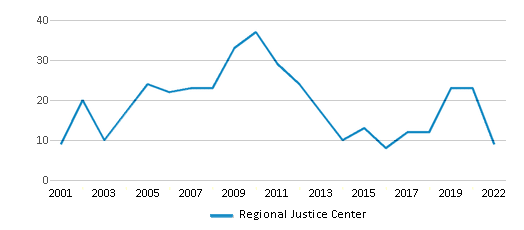
Total Classroom Teachers
1 teacher
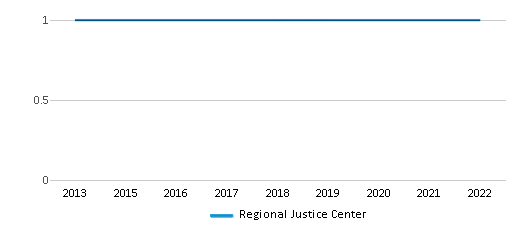
School Rankings
Student : Teacher Ratio
n/a
16:1
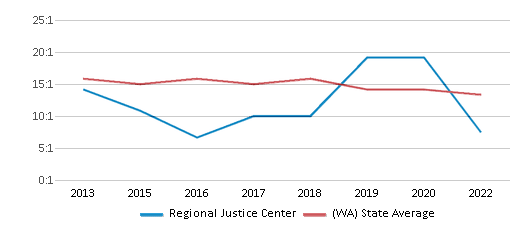
American Indian
(21-22)n/a
1%
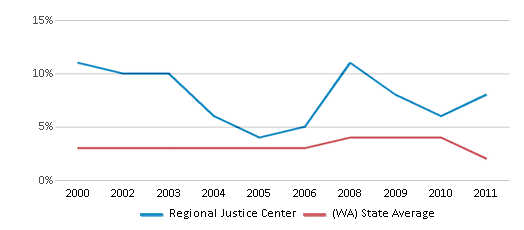
Asian
(21-22)n/a
9%
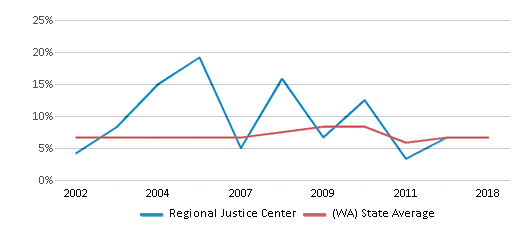
Hispanic
(21-22)35%
25%
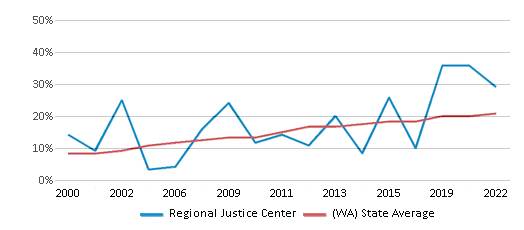
Black
(21-22)46%
5%
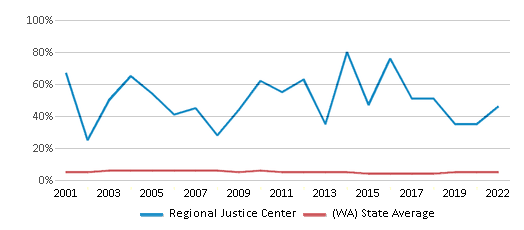
White
(21-22)n/a
50%
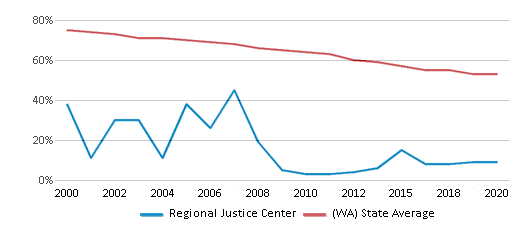
Hawaiian
(21-22)n/a
1%
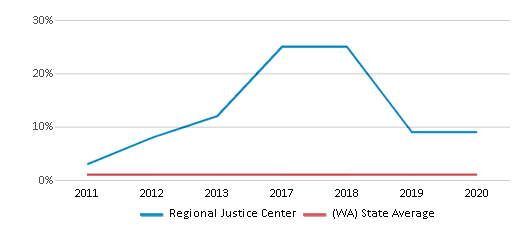
Two or more races
(21-22)13%
9%
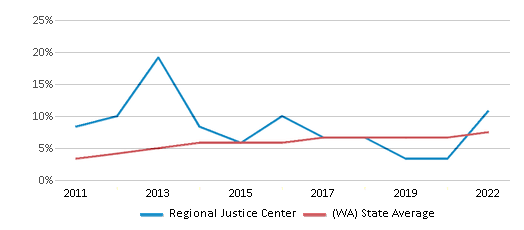
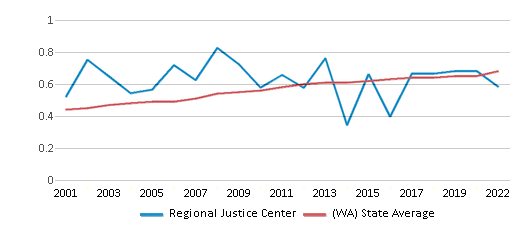
Graduation Rate
(14-15)<50%
81%
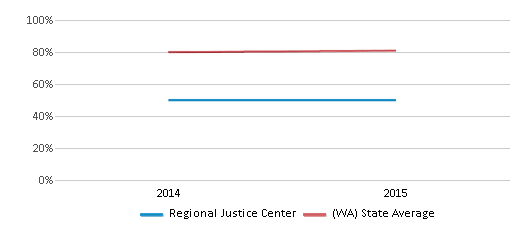
Eligible for Free Lunch (21-22)
100%
36%
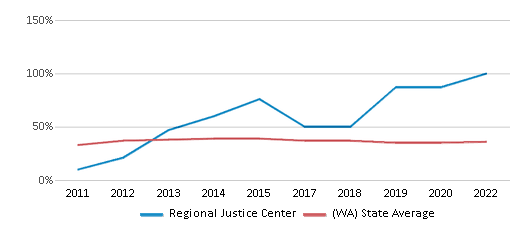
School Statewide Testing
School District Name
Source: National Center for Education Statistics (NCES), WA Dept. of Education
Profile last updated: 02/09/2025
Frequently Asked Questions
What is the graduation rate of Regional Justice Center?
The graduation rate of Regional Justice Center is 50%, which is lower than the Washington state average of 81%.
How many students attend Regional Justice Center?
9 students attend Regional Justice Center.
What is the racial composition of the student body?
46% of Regional Justice Center students are Black, 35% of students are Hispanic, and 13% of students are Two or more races.
What grades does Regional Justice Center offer ?
Regional Justice Center offers enrollment in grades 9-12
What school district is Regional Justice Center part of?
Regional Justice Center is part of Kent School District.
School Reviews
Review Regional Justice Center. Reviews should be a few sentences in length. Please include any comments on:
- Quality of academic programs, teachers, and facilities
- Availability of music, art, sports and other extracurricular activities
Recent Articles

What Is A Charter School?
Explore the world of charter schools in this comprehensive guide. Learn about their history, how they operate, and the pros and cons of this educational innovation. Discover key facts about charter schools, including admission policies, demographics, and funding, as well as what to look for when considering a charter school for your child.

10 Reasons Why High School Sports Benefit Students
Discover the 10 compelling reasons why high school sports are beneficial for students. This comprehensive article explores how athletics enhance academic performance, foster personal growth, and develop crucial life skills. From improved fitness and time management to leadership development and community representation, learn why participating in high school sports can be a game-changer for students' overall success and well-being.

February 05, 2025
Understanding the U.S. Department of Education: Structure, Impact, and EvolutionWe explore how the Department of Education shapes American education, from its cabinet-level leadership to its impact on millions of students, written for general audiences seeking clarity on this vital institution.




![Regional Justice Center drum cam from July 28, 2019 at Franklin Music Hall in Philadelphia, PA. Watch the regular full set at: https://youtu.be/jQ8OqfWgRqw [hate5six-Drum Cam] Regional Justice Center - July 28, 2019 (TIHC 2019)](https://i.ytimg.com/vi/WxWC1clU70c/0.jpg)




